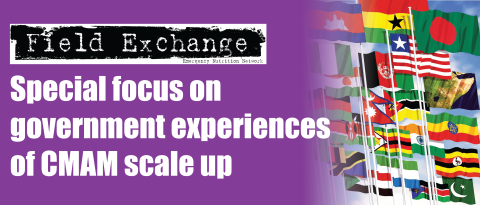Conference on Government experiences of CMAM scale-up

Participants in the CMAM Conference 2011, Addis Ababa
In November 2011, ENN, in collaboration with the Government of Ethiopia (GoE) hosted a 4-day conference in Addis Ababa at which Government representatives from 22 countries in Africa and Asia, as well as members of international non-governmental organisations (NGOs), UN agencies, the private sector, academic institutions and donor agencies came together to share experiences and to identify lessons for further future CMAM scale up. The conference was the first international occasion for Governments to be at the forefront of sharing their lessons of CMAM scale up and as such, provided a unique and rich insight into the achievements and obstacles Governments face in addressing high levels of acute malnutrition in their countries.
Case study countries:
Ethiopia, Pakistan, Niger, Somalia, Kenya, Ghana,
Sierra Leone, Malawi, Mozambique.
Special case:
India
Additional countries:
Nepal, Afghanistan, Bangladesh, Cambodia,
South Sudan, Sudan, Zambia, Uganda, Nigeria,
Zimbabwe, Liberia, Tanzania.
The conference and the participation of Government representatives was made possible with financial support from the Canadian International Development Agency (CIDA), the UK Department for International Development (DFID) and Irish Aid (IA).

The goal of the conference was to provide a learning forum for Government representatives on CMAM scale-up, to identify enabling factors and processes which allow successful scale up, and the challenges that hinder scale up. The conference focused on the policy environment, coordination, technical and supply considerations as well as the funding mechanisms that are required to establish, expand and sustain CMAM service provision at national level.
The conference was opened by His Excellency, Dr KebedeWorku, State Minister for Health, Government of Ethiopia. Her Excellency Michelle Levesque, Ambassador to Canada, welcomed delegates on behalf of CIDA, DFID and Irish Aid. Her Excellency identified that there is a need for commitment to scale up interventions shown to be effective at tackling undernutrition. His Excellency Dr Michael Hissen, Minister of Health for South Sudan, and Her Excellency Dr. Nadeera Hayat Burhani, Deputy Minister of Public Health, Islamic Republic of Afghanistan, made a few opening comments, underscoring the importance of Government leadership in the successful management of undernutrition (see her profile in this issue of Field Exchange). Both also highlighted the value of cross-country learning for the development of CMAM, as well as their commit- ment to strengthening programmes to address undernutrition in their countries.
A video address was made by Dr Mary Robinson, President of the Mary Robinson Foundation - Climate Justice (MRFCJ) (Day 2) and a motivational address from Haile Gebrselassie, the Ethiopian athletic legend, was very well received on Day 3. A short CMAM film compiled for the conference provided a snapshot of CMAM in action, featuring collated video footage and interviews from many of those countries represented.
The first one and a half days of the conference provided the opportunity to learn about and reflect upon country experiences with CMAM. Following an orientation to the CMAM approach, nine Government representatives presented an overview of CMAM scale up in their countries, based on detailed case studies prepared in advance of the event (see field articles in this issue of Field Exchange). The remaining 12 country delegations were also given the opportunity to provide a brief overview of CMAM in their contexts. In addition, Biraj Patnaik (Principal Adviser, Office of the Indian Supreme Court Commissioners on the Right to Food) presented the unique experiences of CMAM in India. Time was provided between presentations for questions from conference delegates and these discussions helped link with the next stage of the conference, which involved a synthesis of lessons learned to date regarding CMAM scale up (see editorial summary in this issue).
Day 3 of the conference was dedicated to working group discussions aimed at drawing conclusions and identifying the next steps for CMAM scale up. The final day provided the opportunity for conference delegates to consider the findings of the CMAM experiences in the context of the Scaling Up Nutrition (SUN) Movement and the implications of the SUN Framework for Action for CMAM scale up.
The conference concluded with the development of specific action points for each of the 22 country delegations and for the donor group. Delegates were grouped according to country, with representatives from the NGO, UN, academic, donor and private sector joining the most relevant groups. Each country was asked to develop a number of points arising from the conference that they will put into action in the coming months.
The ENN is currently undertaking a follow up with attendees regarding actions emerging from the conference that will be shared online and in a future edition of Field Exchange.
The report of the conference is available at www.ennonline.net A limited number of print copies are available, send requests to: office@ennonline.net Film footage of the conference can be viewed or downloaded from www.cmamconference2011.org and on DVD (send requests to office@ennonline.net)

Imported from FEX website


